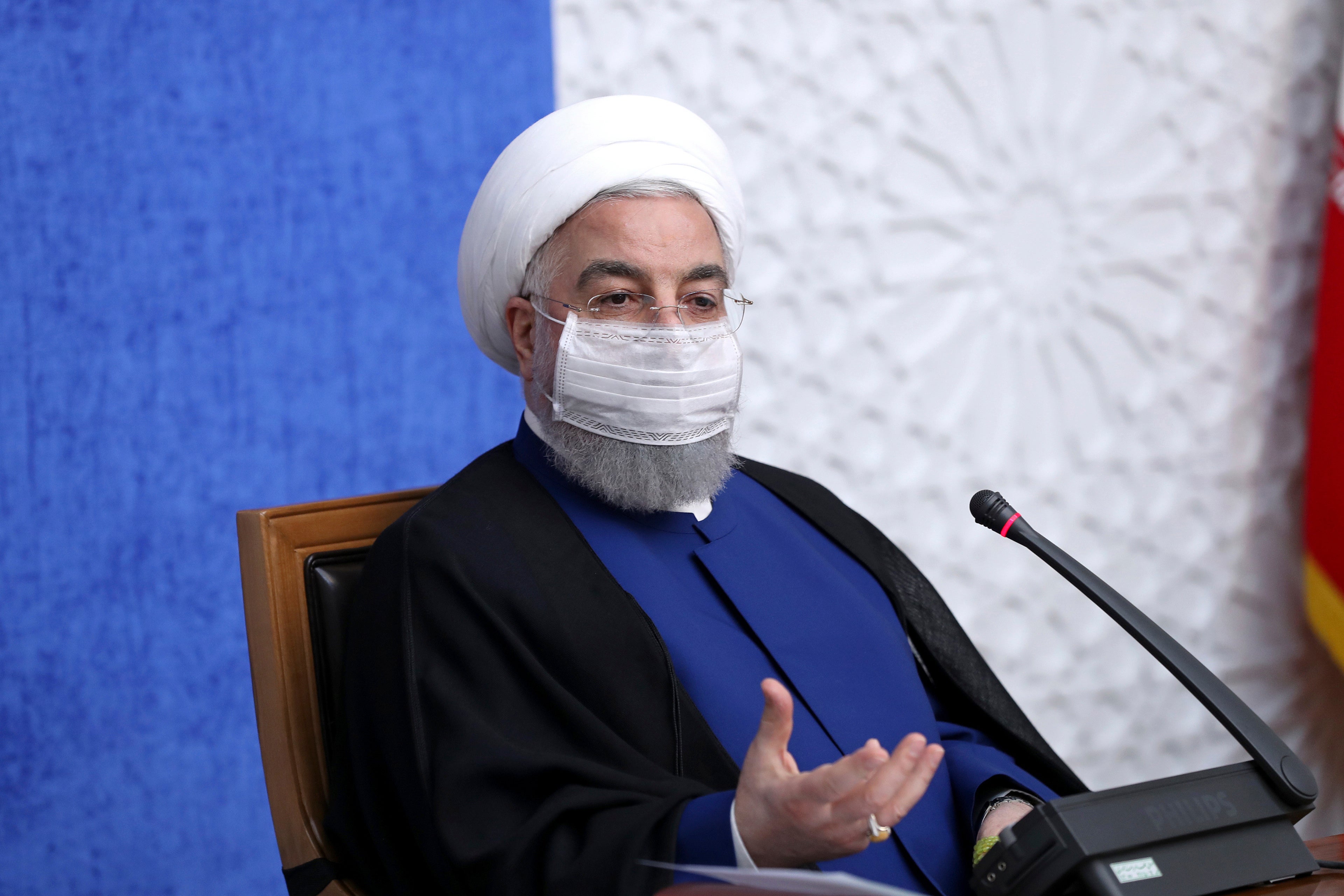UN agency: Iran uranium stockpile still violates atomic deal
The U.N.’s atomic watchdog agency says Iran continues to increase its stockpile of low-enriched uranium far beyond the limits set in a landmark nuclear deal with world powers and to enrich it to a greater purity than permitted

Your support helps us to tell the story
From reproductive rights to climate change to Big Tech, The Independent is on the ground when the story is developing. Whether it's investigating the financials of Elon Musk's pro-Trump PAC or producing our latest documentary, 'The A Word', which shines a light on the American women fighting for reproductive rights, we know how important it is to parse out the facts from the messaging.
At such a critical moment in US history, we need reporters on the ground. Your donation allows us to keep sending journalists to speak to both sides of the story.
The Independent is trusted by Americans across the entire political spectrum. And unlike many other quality news outlets, we choose not to lock Americans out of our reporting and analysis with paywalls. We believe quality journalism should be available to everyone, paid for by those who can afford it.
Your support makes all the difference.Iran continues to increase its stockpile of low-enriched uranium far beyond the limits set in a landmark nuclear deal with world powers and to enrich it to a greater purity than permitted, the U.N.’s atomic watchdog agency said Wednesday.
The International Atomic Energy Agency reported in a confidential document distributed to member countries and seen by The Associated Press that Iran as of Nov. 2 had a stockpile of 2,442.9 kilograms (5385.7 pounds) of low-enriched uranium, up from 2,105.4 kilograms (4,641.6 pounds) reported on Aug. 25.
The nuclear deal signed in 2015 with the United States, Germany, France, Britain, China and Russia, known as the Joint Comprehensive Plan of Action, or JCPOA, allows Iran only to keep a stockpile of 202.8 kilograms (447 pounds).
The IAEA reported that Iran has also been continuing to enrich uranium to a purity of up to 4.5%, higher than the 3.67% allowed under the deal.
Iran has openly announced all violations of the nuclear deal in advance, which have followed the decision by the U.S. to pull out unilaterally in 2018.
The deal promises Iran economic incentives in exchange for the curbs on its nuclear program. Since the U.S. withdrawal and imposition of new sanctions, Tehran has been putting pressure on the remaining parties with the violations to come up with new ways to offset the economy-crippling actions by Washington.
At the same time, the Iranian government has continued to allow International Atomic Energy Agency inspectors full access to its nuclear facilities, a key reason the countries that remain parties to the JCPOA say it's worth preserving.
The goal of the agreement is to prevent Iran from building a nuclear weapon, something the country insists it does not intend to do.
A widely cited analysis by the Washington-based Arms Control Association suggests that Iran now has more than double the material it would need to make a nuclear weapon. However, IAEA Director General Rafael Grossi told The Associated Press in an interview last month that his agency does not share that assessment.
Before agreeing to the nuclear deal, Iran enriched its uranium up to 20% purity, which is a short technical step away from the weapons-grade level of 90%. In 2013, Iran’s stockpile of enriched uranium was already more than 7,000 kilograms (7.72 tons) with higher enrichment, but it didn’t pursue a bomb.
In the quarterly report distributed to members on Wednesday, the IAEA said it still has questions from the discovery last year of particles of uranium of man-made origin at a site outside Tehran not declared by Iran.
The United States and Israel had been pressing the IAEA for some time to look into the Turquzabad facility, which Israeli Prime Minister Benjamin Netanyahu described to the U.N. in 2018 as a “secret atomic warehouse.”
In the current report, the IAEA said the composition of the particles found there was “similar to particles found in Iran in the past, originating from imported centrifuge components.” It said it found Iran's response to questions last month “unsatisfactory."
“Following an assessment of this new information, the agency informed Iran that it continues to consider Iran's response to be not technically credible,” the IAEA wrote this week. “A full and prompt explanation from Iran...is needed.”
_____
Rising reported from Berlin